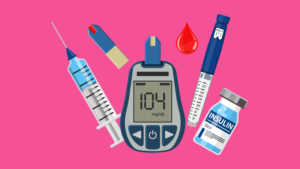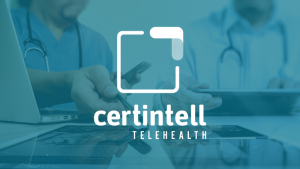Certintell’s newest blog series, “Industry Insights,” takes a look at what topics are buzzing with popularity in the mHealth and care management arena for Community Health Centers (CHCs), FQHCs and other community-based organizations. Here, you can explore how legislation might affect your workflows, what statistics might be preventing better patient outcomes and tips for pushing past your biggest care barriers. Stay on top of what FQHC news you should know below! This month, industry leaders discuss and take measures to prepare a new era of care for 2023 and beyond:
 CMS Releases Final Rule for 2023 Medicare Physician Fee Schedule
CMS Releases Final Rule for 2023 Medicare Physician Fee Schedule
This month, the Centers for Medicare and Medicaid Services (CMS) released the final rule for the 2023 Medicare Physician Fee. Here are some of the key updates clinicians and other health care professionals should keep in mind for the next year:
- Mental Health: The final rule will expand care access by allowing professionals, such as licensed counselors and marriage and family therapists to offer services under general, rather than direct, supervision of a Medicare practitioner.
- Telehealth: Several services that have been temporarily billable as telehealth services during the Public Health Emergency (PHE) will still be billable through at least 2023. This will allow additional time for data collection that may support their inclusion as permanent additions. This exemption includes 54 additional services under category three. The final rule also extends certain telehealth flexibilities to 151 days after the PHE expires. However, CMS decided that audio-only care outside of behavioral health will not be extended until the end of 2023. Finally, the originating site fee was updated from $27.59 to $28.64 for CY 2023 (which is a 3.7 percent increase).
- FQHC News: Federally qualified health centers (FQHCs) and rural health clinics (RHCs) may serve as originating or distant sites for the delivery of telehealth services.
- PFS Conversion factor: The final CY 2023 PFYS conversion factor is $33.06. This is a decrease of 4.5 percent, or $1.55, from 2022.
- Split and Shared Services: CMS seeks to define the “substantive portion” of an split E/M visit by the clinician who uses more than half of the visit time. The organization, however, will delay this transition until 2024, meaning clinicians can still declare history intake, physical exams and medical decision making as the “substantive” action through 2023.
 November Was National Diabetes Month
November Was National Diabetes Month
Diabetes is the seventh leading cause of death in the United States, with more 37 million Americans having been diagnosed. Patients living with diabetes accrue twice as much in medical costs than patients without, which often leaves patients with the condition in heavy financial burden.
November was National Diabetes Month, with this year focusing on empowering patients with the right tools and right information to help them stand up to diabetes. The Department of Health and Human Services (HHS) is encouraging patients to gather and maintain a team of healthcare staff and personal supporters that can keep them on track to manage their condition. Many organizations think this can be done through putting knowledge and information directly in the patient’s hand. Download and share resources to spread the word to your patients living with diabetes:
 Public Health Emergency Extended Again
Public Health Emergency Extended Again
HHS did not alert stakeholders of any intent to lift the COVID-19 public health emergency, which means the PHE will remain in place until January 11, 2023. The PHE, first declared in January 2020 and renewed every 90 days, has had a huge impact on the healthcare system. Enrollment in Medicaid and CHIP have seen a 26 percent increase in enrollment, but it is estimated that as many as 15 million Americans may lose their health coverage once the PHE has ended. Additionally, the PHE has granted additional flexibility in how health organizations operate.
HHS will give stakeholders a 60-day notice in January if they intend to let the PHE end.
 Most Adults in Medicaid-Enrolled Families are Unaware of Renewals Resuming in the Future
Most Adults in Medicaid-Enrolled Families are Unaware of Renewals Resuming in the Future
In other important FQHC news: At the beginning of the pandemic, the Families First Coronavirus Response Act prohibited states from disenrolling members from Medicaid during the PHE. When the PHE ends, millions of Americans could lose their insurance due to eligibility requirements or a lack of knowledge around the renewal process. The Urban Institute recently conducted a study and found that most adults were unaware of the return of Medicaid renewals once the PHE ends. They also found that:
- 62 percent of adults reported hearing nothing about the upcoming eligibility rechecks, and 31.9 percent had heard some-to-a little.
- Only half of the respondents who heard about the upcoming change received notification about the need to renew their coverage.
It’s recommended that state agencies, FQHCs and other health organizations increase communication efforts to prevent unnecessary coverage losses and lessen the information gap among Medicaid enrollees.
White House Announces $4.5 Billion to Lower Heating Costs for Families This Winter
The Department of Health and Human Services announced it will provide $4.5 billion to help lower heating costs for American families. HHS will allocate these funds, under the Low Income Home Energy Assistance Program, to states, territories, and tribes. In addition to subsidizing heating costs and covering unpaid utility bills, the federal program will help families make cost-effective home energy repairs to lower their utility bills.
Individuals interested in applying for energy assistance can visit energyhelp.us or call the National Energy Assistance Referral (NEAR) hotline toll-free at 1-866-674-6327.
Check back here for more FQHC news at the end of every month!




